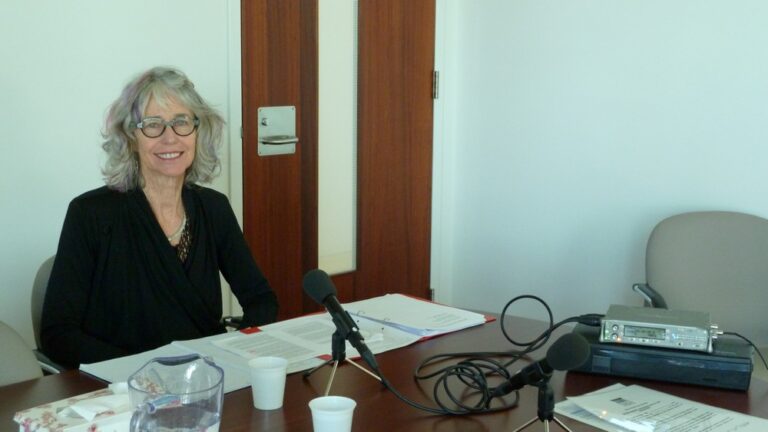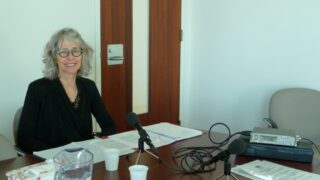- Entry type: Person
- Entry ID: AWE5606
Layton, Robyn
- The Honourable AO QC

- Occupation Barrister, Judge, Lawyer, Solicitor
Summary
The Hon. Dr Robyn Layton has been a champion of social justice and rights for Aboriginal and Torres Strait Islander peoples, refugees, women and children. A former Judge of the Supreme Court of South Australia, Layton was the third woman to take silk in the State. She is a former Judge and Deputy President of the South Australian Industrial Court and Commission, and a former Deputy President of the Commonwealth Administrative Appeals Tribunal. She was the reporter and author of the landmark Child Protection Review into South Australian Child Protection Laws in 2003. Layton has the distinction of having been the first Australian to be appointed as a member of the International Labour Organization’s Committee of Experts on the Application of Conventions and Recommendations, and its first female Chair. In 2012 she was appointed an Officer of the Order of Australia (AO) for services to the law and to the judiciary, particularly through the Supreme Court of South Australia, as an advocate for Indigenous, refugee and children’s rights, and to the community.
Robyn Layton was interviewed by Kim Rubenstein for the Trailblazing Women and the Law Oral History Project. For details of the interview see the National Library of Australia CATALOGUE RECORD.
Details
Robyn Layton graduated from the University of Adelaide with a Bachelor of Laws in 1967. Admitted in 1968, she worked in private practice, predominantly in the areas of industrial, criminal, civil, personal injury and family law. She commenced her court work acting pro bono for demonstrators and conscientious objectors to conscription during the Vietnam war and later for Aboriginal people charged with criminal offences.
In 1972, Layton was appointed by the Commonwealth as solicitor to the Central Aboriginal Land Rights team; the experience kindled in Layton what would be a life-long commitment to Aboriginal and Torres Strait Islander people and the law. The team’s achievements would also make a valuable contribution to the later work of the Central and Northern Land Councils. The following year, in a departure from her usual legal work, Layton accepted an offer from the Rolling Stones’ tour promoter: “to shadow the Rolling Stones on their tour of Adelaide, and provide any legal advice if needed”. While Layton remembers it as a ‘surreal’ experience, it was said that “[d]espite the legal safety net created, the tour went off almost without a hitch” [ABC News].
In 1978 Layton was appointed a Judge and Deputy President of the South Australian Industrial Court and Commission; in 1985 she became the Deputy President of the Commonwealth Administrative Appeals Tribunal. She returned to the legal profession and the South Australian Bar and was appointed a Queen’s Counsel in 1992, the third woman to take silk in South Australia [UNI SA].
Layton was the first Australian to be appointed as a member of International Labour Organization (ILO) Committee of Experts on the Application of Conventions and Recommendations, and its first female Chair. This prestigious Committee of international jurists monitors and reports on government practices on international labour standards world-wide. She sat on this body in Geneva from 1993 to 2008. [UNI SA].
Between 2002 and 2003 Layton reviewed and reported on a whole of state government response to child protection in the landmark Child Protection Review into South Australian. This Report found that Family and Youth Services was ill-equipped to deal with child abuse and called for more funding for child protection and major reforms, including a paedophile register [MX]. In June 2004 the South Australian Premier commended Layton’s report, committed further funding to her recommendations and observed that her comprehensive review had provided a guide to rebuilding child protection in South Australia [Weatherill].
Layton was appointed a Judge of the Supreme Court of South Australia in 2005, the fourth female judge in South Australia. A year later she and two fellow female judges made legal history in South Australia when they sat – an all-female bench of three – in the State’s Court of Criminal Appeal [James]. During her time at the Supreme Court Layton developed an international reputation as an expert in the field of education for judges and lawyers on labour standards [The Australian]. She was also active nationally on judicial and legal education on the issues concerning children in court. In 2010 Layton resigned from the Supreme Court. In her farewell speech Layton advocated for more funding for judicial education and indicated her commitment to continue her efforts in this area [The Australian]. In 2011, Layton continued in her judicial education capacity internationally with ILO.
In relation to a judge’s role, Layton has observed that it increasingly complex: “It is not just knowing the law and how to apply the law in an academic sense”, “[t]here is now a greater need to connect with the community, to keep public confidence; the need to have the public feel that the judicial system is part of their community, to make decision making understandable to people other than lawyers. In particular in the criminal law, to ensure that the sentencing process is fair and it is understood both by the defendants and victims” [Hunt].
In 2012 Layton was also appointed an Officer of the Order of Australia for her services to the law and to the judiciary, particularly through the Supreme Court of South Australia, as an advocate for Indigenous, refugee and children’s rights, and to the community. In the same year she was recognised in the Australian of the Year Awards as the “South Australian of the Year” for her social justice advocacy for Aboriginal people, children and refugees. Thereafter, further awards followed in 2013, an Honorary Doctorate, D.Univ. University of South Australia and the Justice Award by the Law Society of South Australia; and in 2016 the Australian Woman Lawyer of the Year by the Australian Women Lawyers Association.
Layton’s skills were further extended to benefit not only Australians but women in communities further afield, as evidenced in 2012 to 2013, when she became the team leader for the Asian Development Bank (ADB) Project on good legal, social and economic practices to reduce poverty and increase employment for women in Kazakhstan, Cambodia and the Philippines [The Australian].
In 2014 Layton became Chair of the Panel for the Review of the Anangu Pitjantjatjara Yankunytjatjara Land Rights Act 1981. This Review required undertaking an intensive consultative approach to report on recommendations to reform the governance of the Anangu Pitjantjatjara Yunkunytjatjara Lands (APY Lands). Many visits were made to the APY Lands to obtain views on how Anangu people wanted governance structures to operate on the APY Lands [SBS].
Layton is a patron of the Australian Migrant Resource Centre, Junction Australia, Women’s Legal Services SA, and the International Women’s Day Committee. She chairs the Advisory Council for the Australian Centre for Child Protection and the Justice Reinvestment SA Committee. She is also member of many bodies and organisations concerned with social justice and is active at the University of South Australia as an Adjunct Professor in the Law School.
During her lifetime, Layton has made a considerable contribution in the areas of Aboriginal and Torres Strait Islander rights, the rights of refugees and children, and the advancement of women’s economic empowerment. She has done much to increase the profile of judicial and legal education in Australia and is internationally recognised as an expert in the field of international labour law.
Archival resources
Digital resources
Published resources
-
Site Exhibition
- Australian Women Lawyers as Active Citizens, http://www.womenaustralia.info/lawyers/biogs/AWE5606b.htm
